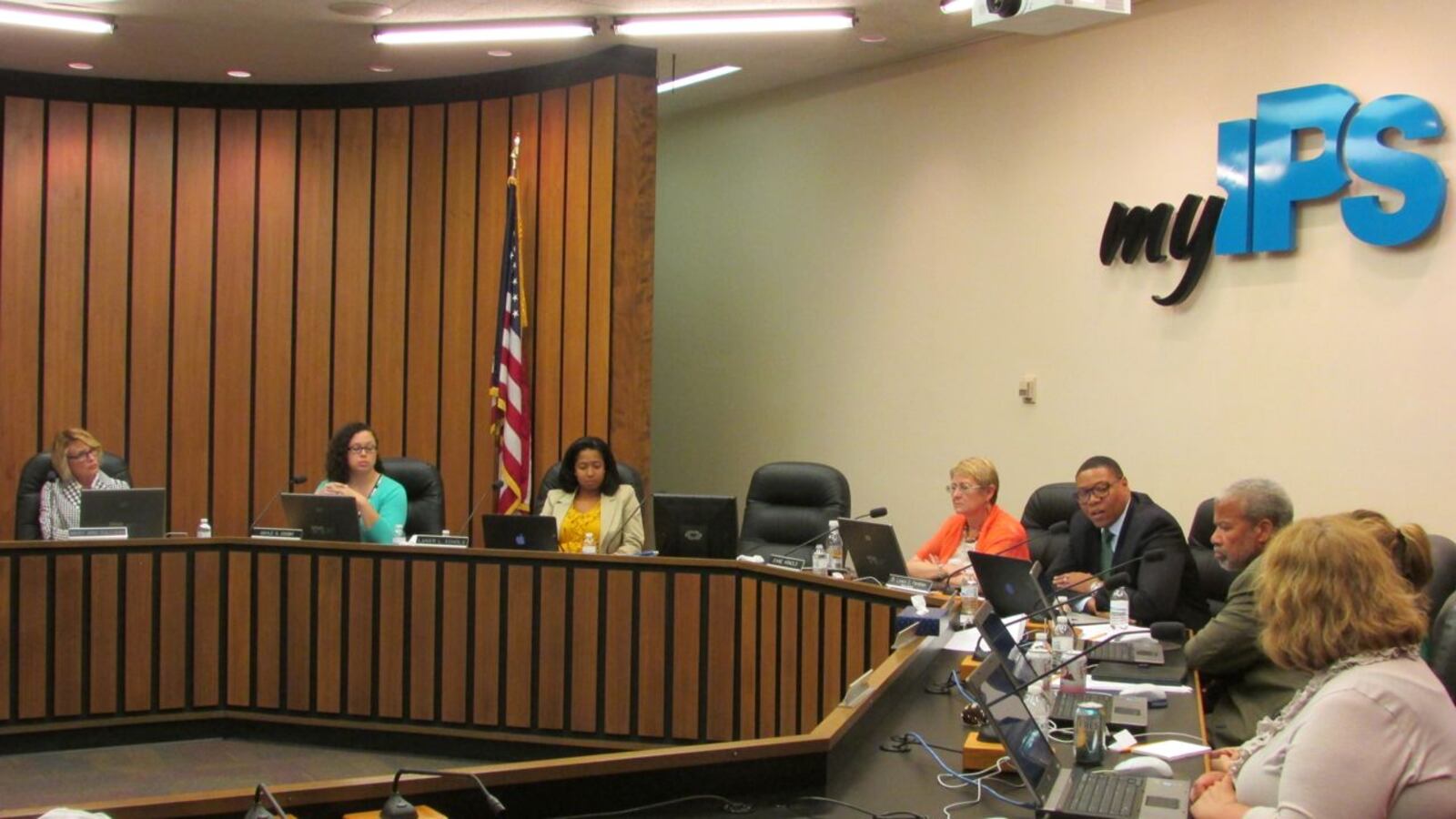Indianapolis Public Schools can now crack open a previously restricted rainy day fund if it needs money to fill budget gaps — a move the school board could soon need to make.
The board today approved a change in the purpose of the fund, which had outdated rules that kept the district from accessing about $21 million. At the same time, IPS is looking for ways to fill a funding gap for the upcoming school year caused by legislative changes, which will cost millions in state funding, and any enrollment losses.
“How do we cover that deficit for this year?” Deputy Treasurer Paul Carpenter Wilson said. “That’s the question. This is a first step to make funds available for any funding shortfall.”
The rainy day fund had outdated rules requiring it be used either for desegregation payments, which the district no longer makes, or to cover pension obligations that no longer apply.
Superintendent Lewis Ferebee told the board on Tuesday he could be back soon with a proposal to use money from the fund.
Why? One possible reason is that the district’s income is dropping.
For the first half of 2015, IPS’s general fund income fell by 4.3 percent. Part of the problem is a continuing drop in state aid.
The district expects a tiny bump up in per-student state aid over the two next years under the state budget approved in April, but changes to the way the state calculates extra aid for poor students will cost the district big money.
IPS officials in April projected a loss of $6.5 million in state aid overall for the next two years if its enrollment stays steady. The loss could be much bigger if fewer students enroll. The district also lost nearly $1.4 million in federal Title 1 poverty aid this year after changes in the U.S. Census count of families in poverty.
The district is shifting from a calendar year budget to a school year budget that will run July 1 to June 30 for the upcoming year. Its $116 million general fund spending for the first half of 2015 slightly outpaced its income by about $761,000. But it began a new budget year this month.
In March, district officials said the 2015-16 general fund budget for day-to-day expenses would closely match income to expenses, and therefore would not produce a surplus as it did the past two years. IPS had consecutive surpluses of $4 million and $8 million.
School officials don’t expect to see enrollment grow, as it did in 2011-12 and 2012-13, or fall dramatically like it did for several years before that. It will most likely remain steady this year.
Despite the thin financial margins, Ferebee continued to promise teachers a raise will result from negotiations with the union that are soon to begin. Teacher raises remain a priority for the district no matter what its financial condition, he said.
“Whether there’s room or not, there are going to be teacher raises,” Ferebee said. “We need to be more competitive with compensation.”
Another potential budget problem is a drop in property tax collections, which pay for busing, building repairs and other costs outside of the classroom.
IPS already collects a paltry amount of the property taxes it is due: 47 percent last year. But that number dropped to 45.3 percent for the first half of 2015. District officials said they are asking county officials to help them figure out why.
The board also approved the hiring of a new treasurer. Weston Young, a financial adviser based in Zionsville who has a fourth-grader in IPS and last year was a member of IPS’s budget development committee, will be the district’s chief financial manager. He started work today.


